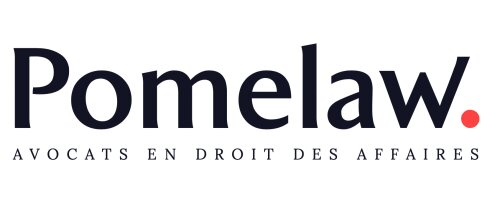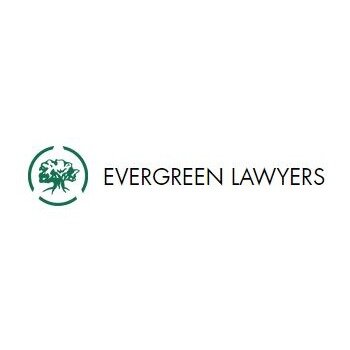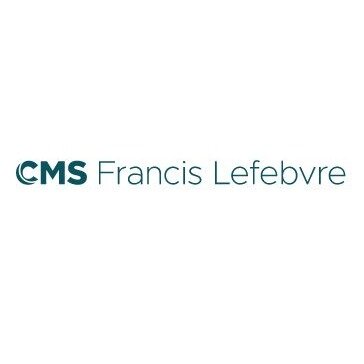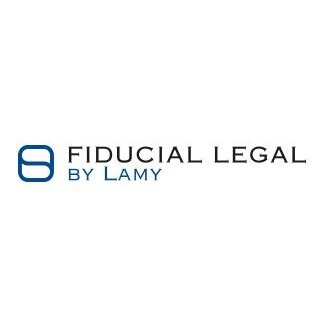Best Tax Increment Financing Lawyers in Lyon
Share your needs with us, get contacted by law firms.
Free. Takes 2 min.
List of the best lawyers in Lyon, France
About Tax Increment Financing Law in Lyon, France
Tax Increment Financing (TIF) in Lyon, and more broadly in France, is a public finance instrument used to stimulate economic development and infrastructure improvements. In this framework, the anticipated future increase in property tax revenues generated by a new development is used to fund the current improvements that enable the development to occur. Such financing tools are designed to assist urban renewal projects and boost economic growth within designated areas, primarily through revitalization efforts aimed at infrastructure and community development.
Why You May Need a Lawyer
Engaging with Tax Increment Financing can be complex and require legal expertise due to the intricate nature of these financial agreements and their implications. Here are common situations where legal help might be required:
- Project Planning and Development: Assistance with negotiating and structuring agreements for new or ongoing development projects that involve TIF.
- Compliance: Ensuring compliance with local, regional, and national laws regarding public finance and urban development.
- Dispute Resolution: Legal representation in disputes arising from TIF agreements or disagreements with project stakeholders or local authorities.
- Documentation and Due Diligence: Drafting and reviewing legal documents, contracts, and assessing the feasibility of proposed TIF projects.
- Legal Advice: Providing guidance on regulatory changes, financing options, and risk assessment.
Local Laws Overview
In Lyon, TIFs follow specific guidelines and regulations that conform with both regional and national standards. Key aspects of local TIF-related laws include:
- Designation of TIF Districts: Only certain areas may be designated as TIF districts, often areas in need of economic development or infrastructure improvements.
- Public Participation: Mandates public consultations to keep community members informed and involved in the planning process.
- Transparency and Reporting: Requires regular reports on the financial and developmental progress of TIF projects to relevant authorities and the public.
- Financial Management: Regulations on how increased tax revenues can be allocated and managed.
- Environmental Compliance: Ensures that projects meet environmental standards, promoting sustainable development patterns.
Frequently Asked Questions
What is the primary purpose of TIF in Lyon?
The primary purpose of TIF in Lyon is to foster economic growth and urban renewal in designated areas by using future tax revenue increases to fund current infrastructure and public projects.
Who benefits from TIF projects in Lyon?
Benefits from TIF projects are generally widespread, including local communities, property owners, developers, and the municipal government through revitalized infrastructure and increased property values.
Are there risks associated with TIF in Lyon?
Yes, potential risks include the possibility that projected increases in tax revenues do not materialize, potentially leaving municipal budgets stretched or impacting other community services.
Can TIF areas be expanded or modified?
Yes, depending on local legislation and needs, TIF areas can sometimes be expanded or modified through regulatory processes and public consultations.
Who oversees TIF projects in Lyon?
TIF projects are commonly overseen by municipal authorities in collaboration with relevant governmental bodies responsible for economic development and public finance.
How long do TIF districts typically last?
TIF districts generally have a time frame of several years, typically 15 to 30 years, depending on the scope and objectives of the projects.
Is community input considered in TIF planning?
Yes, community input is an essential part of TIF planning, with public consultations required to gather stakeholder feedback and ensure transparency and accountability.
What types of projects can be funded with TIF?
Projects eligible for TIF funding often include infrastructure improvements, public buildings, affordable housing, and other developments that enhance community value and economic activity.
How are potential TIF projects evaluated?
Potential projects are evaluated based on their economic viability, potential benefits, alignment with urban development goals, and compliance with relevant regulatory frameworks.
What role do lawyers play in TIF processes?
Lawyers play a crucial role in TIF processes by advising on legal structures, ensuring regulatory compliance, drafting and negotiating contracts, and representing stakeholders in any disputes.
Additional Resources
For further information and assistance, consider reaching out to the following organizations and bodies:
- Lyon Urban Development Agency (Lyon Métropole): Provides insights and guidance on urban planning and development initiatives.
- French Ministry of Economy and Finance: Offers information on regulations affecting public finance instruments like TIF.
- Local Law Firms Specializing in Public Finance: Seek professional advice from legal experts specializing in public and administrative law.
- City of Lyon Economic Development Department: Provides resources and support for business development and public-private partnerships.
Next Steps
If you need legal assistance with Tax Increment Financing in Lyon, consider taking the following steps:
- Research and Consult: Start by researching local laws and consulting available resources to get a basic understanding of the TIF landscape.
- Seek Professional Guidance: Contact law firms or legal professionals specializing in public finance and development law for expert advice.
- Attend Public Meetings: Participate in public consultations and meetings to stay informed about ongoing or proposed TIF projects in your area.
- Engage with Local Authorities: Connect with municipal authorities or economic development agencies to discuss your ideas or concerns regarding TIF projects.
- Prepare Documentation: Gather necessary documents and prepare any inquiries or proposals you might need for legal consultations or presentations.
Lawzana helps you find the best lawyers and law firms in Lyon through a curated and pre-screened list of qualified legal professionals. Our platform offers rankings and detailed profiles of attorneys and law firms, allowing you to compare based on practice areas, including Tax Increment Financing, experience, and client feedback.
Each profile includes a description of the firm's areas of practice, client reviews, team members and partners, year of establishment, spoken languages, office locations, contact information, social media presence, and any published articles or resources. Most firms on our platform speak English and are experienced in both local and international legal matters.
Get a quote from top-rated law firms in Lyon, France — quickly, securely, and without unnecessary hassle.
Disclaimer:
The information provided on this page is for general informational purposes only and does not constitute legal advice. While we strive to ensure the accuracy and relevance of the content, legal information may change over time, and interpretations of the law can vary. You should always consult with a qualified legal professional for advice specific to your situation.
We disclaim all liability for actions taken or not taken based on the content of this page. If you believe any information is incorrect or outdated, please contact us, and we will review and update it where appropriate.
















